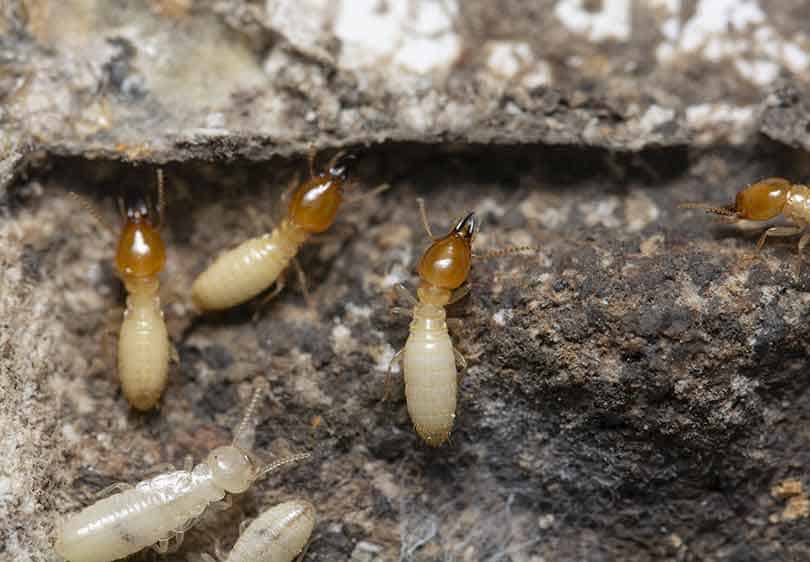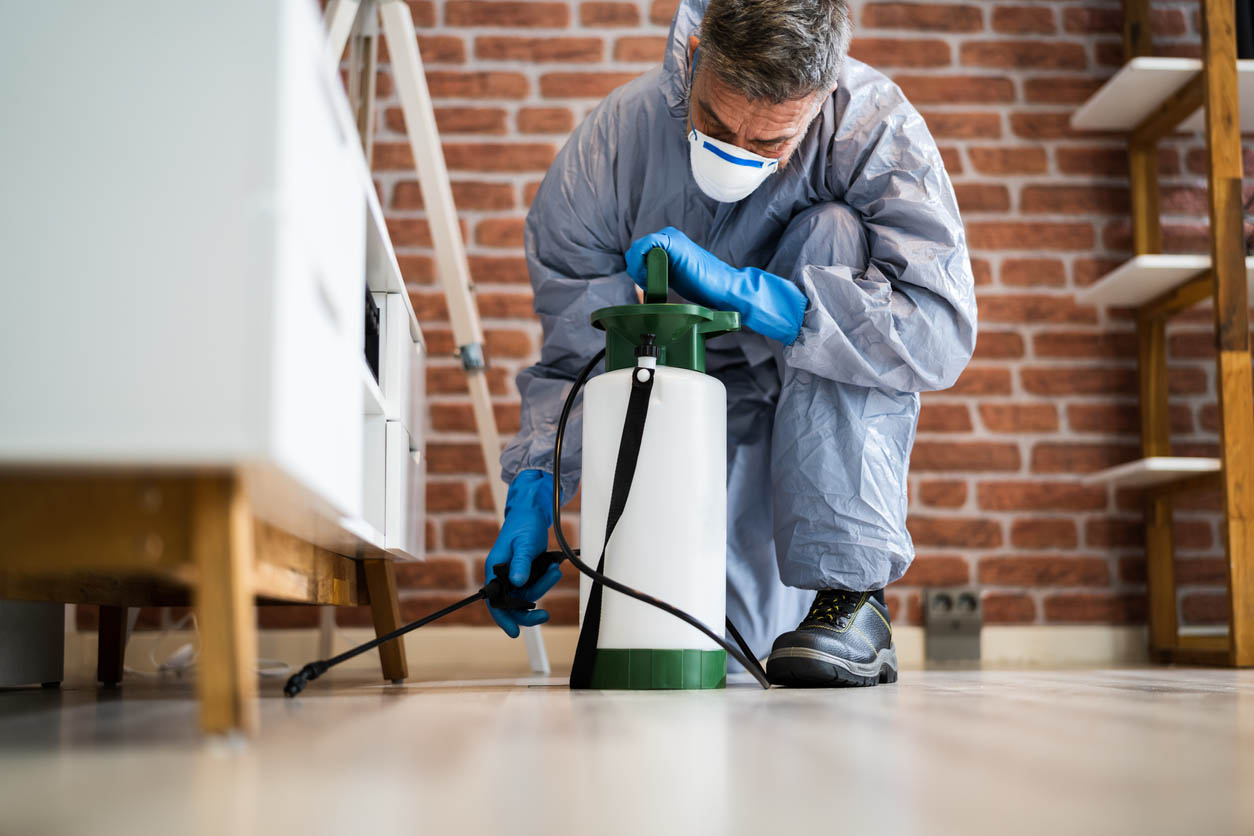Orem Pest Control Professionals: Protecting Your Property with Proven Approaches
Wiki Article
Uncovering the Different Sorts Of Insect Control Techniques and Their Applications
Insect control is a vital facet of keeping a healthy and risk-free atmosphere, whether it remain in household, commercial, or farming setups. Various techniques have been created and fine-tuned throughout the years to effectively minimize and take care of parasite problems. From chemical approaches that target specific insects to biological techniques that harness all-natural killers, the realm of parasite control is diverse and substantial. Understanding the various sorts of pest control techniques and their applications is necessary for carrying out the most appropriate and sustainable remedies. Allow's explore the intricacies of these techniques and how they can be effectively utilized to deal with pest-related difficulties.Chemical Parasite Control Methods
Chemical parasite control strategies are widely made use of in farming and pest monitoring to properly eliminate or manage pest problems. These methods involve the use of chemical materials, such as pesticides, herbicides, and chemicals, to reduce or eliminate pest populations that pose a risk to crops, animals, or human wellness.While chemical insect control strategies can be extremely efficient in taking care of insect populaces, they likewise raise problems regarding possible environmental and health dangers. It is vital to follow safety and security standards, use incorporated pest management strategies, and consider alternate approaches to reduce the adverse influences of chemical bug control methods.
Organic Bug Control Approaches
 Organic pest control approaches utilize living microorganisms to decrease and manage parasite populations in a eco friendly and lasting manner. This technique includes introducing natural killers, bloodsuckers, or pathogens to manage bugs without the need for synthetic chemicals. One usual approach is the launch of ladybugs to deal with aphids in yards, as ladybugs are all-natural killers of these destructive pests. Another instance is the usage of Bacillus thuringiensis (Bt), a microorganism that produces toxins deadly to certain insect larvae, to manage insects and caterpillars.
Organic pest control approaches utilize living microorganisms to decrease and manage parasite populations in a eco friendly and lasting manner. This technique includes introducing natural killers, bloodsuckers, or pathogens to manage bugs without the need for synthetic chemicals. One usual approach is the launch of ladybugs to deal with aphids in yards, as ladybugs are all-natural killers of these destructive pests. Another instance is the usage of Bacillus thuringiensis (Bt), a microorganism that produces toxins deadly to certain insect larvae, to manage insects and caterpillars. 
Organic pest control approaches supply numerous advantages over chemical approaches. Overall, biological bug control methods offer a all-natural and efficient option to typical chemical treatments, promoting a well balanced community and healthier atmospheres.
Physical Insect Control Approaches
Using physical approaches to manage bugs involves the usage of non-chemical or mechanical methods to take care of and mitigate parasite invasions efficiently. These techniques rely upon physical barriers, catches, and other methods to deter and eliminate parasites without using damaging chemicals. One usual physical bug control technique is the installment of webs, fences, or screens to obstruct insects from getting in certain locations. This approach is specifically efficient in staying out bugs and small pets from structures or gardens.An additional physical approach is the usage of catches, such as breeze catches for rats or scent catches for pests. These catches go to this website objective to catch parasites without posing any kind of threat to human beings or the environment. Additionally, physical control techniques can include strategies like handpicking bugs off plants, using vacuum devices to get rid of insects, or employing warm therapies to eradicate bed insects and various other insects in ravaged locations.
Integrated Insect Administration Strategies
Carrying out a holistic method to pest monitoring, Integrated Pest Monitoring (IPM) strategies intend to combine numerous reliable methods to stop and manage bug invasions while decreasing environmental effect and guaranteeing lasting insect control techniques. IPM includes the combination of numerous control approaches such as organic control, social techniques, mechanical control, and the careful use chemicals.

Moreover, IPM highlights the importance of surveillance and analyzing pest populations to figure out one of the most suitable control techniques. By implementing IPM strategies, insect control initiatives come to be more targeted and reliable, decreasing the threats connected with extreme chemical use and promoting long-lasting pest monitoring solutions.
All-natural and Organic Parasite Control Options

One popular organic insect control approach is neem oil, derived from the seeds of the neem tree, which works as a repellent and disrupts the original source the development and advancement of pests. Diatomaceous earth, a natural silica-based powder, is an additional effective natural insect control choice that functions by dehydrating bugs upon call. By including natural and organic insect control alternatives right into pest administration strategies, individuals can properly control insects while lessening injury to the environment and advertising sustainable methods.
Conclusion
In verdict, various insect control methods such as chemical, organic, physical, integrated pest management, and natural choices are offered for properly handling bug problems. Each approach has its very own advantages and applications relying on the kind of bug and the atmosphere. By understanding the different sorts of insect control methods and their applications, individuals can make educated decisions on the most proper strategy to regulate parasites and shield their residential property.Chemical parasite control methods are extensively made use of in farming and parasite monitoring to properly get rid of or manage pest invasions - Orem Pest Control. Natural insect control methods involve making use of organic control agents, such as bloodsuckers or killers, to take care of bug populations. By including natural and natural pest control alternatives right into insect management methods, people can properly manage pests while minimizing damage to the environment and advertising sustainable techniques
In final thought, various pest control strategies such useful link as chemical, biological, physical, integrated parasite monitoring, and natural alternatives are offered for efficiently taking care of bug invasions. By comprehending the different kinds of insect control strategies and their applications, individuals can make educated choices on the most proper method to control bugs and safeguard their building.
Report this wiki page